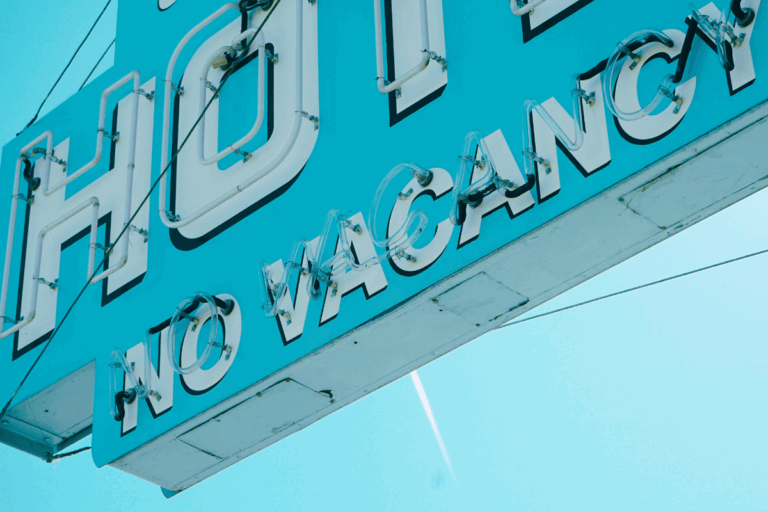The world has now lived with Covid-19 for more than two years.
Two years of facemasks, hand sanitiser, business closures, travel restrictions and chaotic supply chains.
It still all feels somewhat surreal, but there’s finally some light at the end of the tunnel: Lockdowns, at least in most parts of the world, seem to be a thing of the past. Business travel is back.
And yet, as one crisis comes under control, another emerges. Chaos, it seems, is the theme of the decade so far. Unprecedented times indeed.
So, what’s really happened in business travel since 2020? How has it changed? And (dare we ask), what’s next?
What’s happened in business travel since March 2020?
Although the timelines in different countries were different, sometimes strikingly so, the key events in business travel since March 2020 followed roughly the same path.
By March 2020, lockdowns and border closures were in effect, almost worldwide.
Businesses rapidly shifted meetings and events from in-person to virtual platforms.
Total global business travel expenses contracted by 52 percent.
Vaccine rollouts boosted confidence, opening regional and domestic travel.
As borders opened, safety guidelines, contact tracing and quarantines added friction.
New variants, waves and further lockdowns shook confidence once again.
Businesses re-evaluated their travel needs; what’s essential?
Appetites for business travel, events and meetings return – with a focus on ESG.
Travel: Back in business?
Two years on, and in many ways, the world feels a little bit more like it used to. Concerts are back, restaurants are full, nightclubs are open – but people are still getting covid.
One of the key differences is the recovery in business travel. 2022 has, so far, been a triumphant year as new business travel bookings rose by more than 400% in the final week in February over the same period in 2021. HotelHub’s monthly global transactions returned to 87% of pre-pandemic volumes in the first quarter of the year.
Even with this resurgence in confidence, and a renewed appetite for business travel, things aren’t at 2019’s pre-Covid levels just yet. And there’s a few reasons behind this.
Global instability and environmental movements
Business travel is bouncing back – that’s for certain. And for many companies and their client bases, in-person meetings and events are their business. However, key changes to attitudes are now emerging.
There’s a growing focus on environmental, social and governance (ESG) responsibilities. If an in-person meeting that involves travel-related carbon emissions could be avoided with virtual meetings, businesses will invariably choose the virtual option where possible.
There’s also the looming threat of global instability – war, food shortages and fuel price rises to name but a few. Everything’s expensive. And even with travel now largely deemed Covid-safe, fear of getting caught up in the Russia/Ukraine conflict is prompting some would-be travellers to stay put, while operators cut ties with key routes.
From chaos to stability to chaos once more. Is this the future of business travel?
The next five years in business travel
Certainty and clarity have been hard to come by for the entirety of the 2020s so far. But we think some things are definitely going to continue.
> Digitisation
Where business travel is still essential to operations and service levels, the process will be leaner, faster – and more digital than ever.
Virtual card payments, contactless digital keys and more automated, app-controlled hotel experiences are becoming the norm. Centralised billing will save corporate travellers from the hassle of separating expenses and personal costs.
This rise in automation will also help relieve the staffing pressure on travel and tourism – with fierce competition made even more difficult by the rising cost of living.
Self-booking platforms for hotels will become more important, in part because of the changing trends among corporate travellers.
In short, digital is improving business travel experiences massively, which is important considering the key changes to corporate traveller demographics.
> Generation Z: Welcome to the world of business
In the next five years, your typical corporate traveller (and core workforce) is largely going to be made up of members of Gen Z and tail-end millennials. These are the children of the digital revolution, used to tailored experiences and being in control of everything through their phones.
This is also the generation robbed of key experiences thanks to Covid. They want to travel and they’ll seek out experiences through work, social and personal means. And it’s likely that they’ll mix business and pleasure through longer trips.
‘Bleisure’ travel has more benefits though – to both employee wellbeing and to the company. Allowing for leisure time on business trips can positively influence mental health, productivity, and motivation among employees – and improve their engagement with the organisation.
That’s a big factor to consider, especially during the ‘great resignation’ and increased competition for talent – but it also puts your people first and treats them as more than just travelling assets.
> Longer trips and reduced environmental impact
Rather than making more trips, we expect fewer flights in favour of longer stays. Corporate travellers seeking to reduce their carbon footprint and companies engaging in ESG initiatives, will be keen to accommodate for this.
And for those looking to take their environmental commitment to the next level, there could be a whole new world of possibilities on the horizon.
> The metaverse
The metaverse: an immersive digital world hyped as the successor to the internet. Right now, it’s something of a joke which belies the potential of it and the impact it might have. Current metaverse demos are somewhat unappealing; however, one day, it could be indistinguishable from reality. And it could potentially eat into business travel.
RendezVerse – a new platform being built by Peter Gould, founder of Private Luxury Events and T-Fest – aims to reduce unnecessary site visits and environmental impact, by building a ‘second world’ of venues in the metaverse. The platform wants to provide an immersive, 3D virtual ‘twin’ of a venue or space, allowing meetings to take place in uncanny virtual simulations, via a VR headset.
While this sounds very space-age and cool, ultimately we’re human; we crave human connection. We want to spend time immersed in places, with people, having experiences that touch all of our senses. When we meet people, we want the whole package.
For smaller events, shorter trips, or just for the novelty factor, the metaverse might actually suit a lot of businesses, especially the environmentally-conscious. But we’re not sure it’ll catch on across the board.
Let’s check back in five years…







